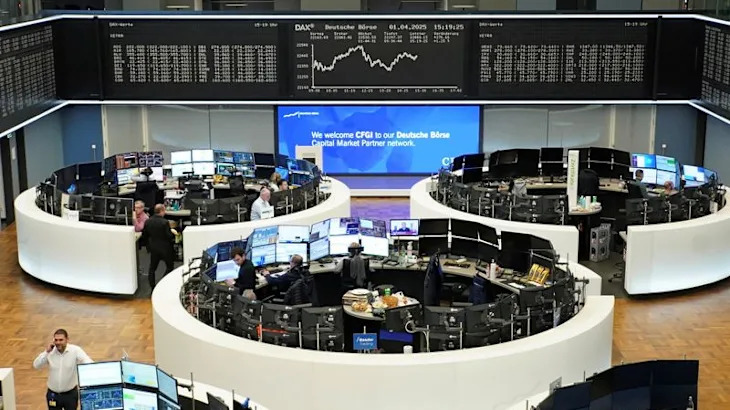As companies race to incorporate AI into their day-to-day operations, a "two-tier" economy is emerging between startups and larger corporations, Tanuja Randery, the managing director of Amazon Web Services in EMEA told Fortune.
Citing a new report from AWS, Randery said that European startups had integrated AI at pace over the last year while larger enterprises in the region were falling behind.
The report was produced by AWS's independent policy and research consultants, Strand Partners, who conducted surveys across the European Union, the UK, and Switzerland that targeted 1,000 nationally representative members of the public and surveyed 1,000 business leaders.
"Startups are really leveraging AI to build entirely new products and business models. So it's not just experimentation—it's really embedding it in the core of everything that they're doing," Randery said. "Enterprises are largely still experimenting around productivity."
"There is a little bit of an emergence of what I would call a two-tier, or two-speed AI economy, with tech-driven startups outpacing larger enterprises, and I think that's an important thing for us to keep an eye on," she added.
Recently, several major companies have begun talking more openly about using AI to boost their day-to-day operations. Big Tech companies, including Google and Meta , are leading the way, already using AI to automate coding work within the companies.
But, larger companies also have to reckon with complex layers of internal structures, external regulation, and a digital skills gap when trying to incorporate emerging tech.
Startups, in comparison, thrive in innovation-driven environments and are typically more tech-savvy and nimble when it comes to working with new tech. Their agility, modern tech stacks, and innovation-first cultures make incorporating new forms of tech easier than in larger enterprises that require multiple levels of approval for changes.
The report found that only 3% of larger companies in Europe have embedded AI at their core in the same way as startups. It also said if this gap isn’t addressed, Europe risks missing out on a projected $434 billion in GDP from cloud-enabled AI by 2030.
Randery partially attributed this to larger businesses struggling to keep up with and fully understand their responsibilities in a fast-moving regulatory environment.
"Regulation, in particular here in Europe, is complex and businesses are struggling a little bit to keep up with and understand their responsibilities under the EU AI Act," she said.
Europe's AI dilemma
Europe has been trying to simplify its approach to AI regulation following the Paris AI Action Summit last week.
The European Union's AI Safety Act, the world's first major legal framework for AI, came into force last August, with some of its obligations set to apply from this month.
It aims to ensure safety and protect fundamental rights in the AI age, but some have argued it's overcomplicated, stifles innovation, and makes the region less competitive at a time when the U.S. is pulling back on tech regulation.
At the Summit last week, French President Emmanuel Macron appeared to acknowledge that European regulation had become complicated. He announced that Europe would cut back on regulation and "simplify" it to make it easier for artificial intelligence to flourish in the region.
Randery said European businesses are currently saying that they spend, on average, 40 euros out of every 100 on technology in compliance and regulation.
"Imagine if you could put that 40 euros back into technology," she said. "Europe has all the foundations for success...I think we've got all that we need to make this phenomenally transformative for us."
"However, I think the barriers that we have in Europe are holding us back from further adoption of AI," she added.





